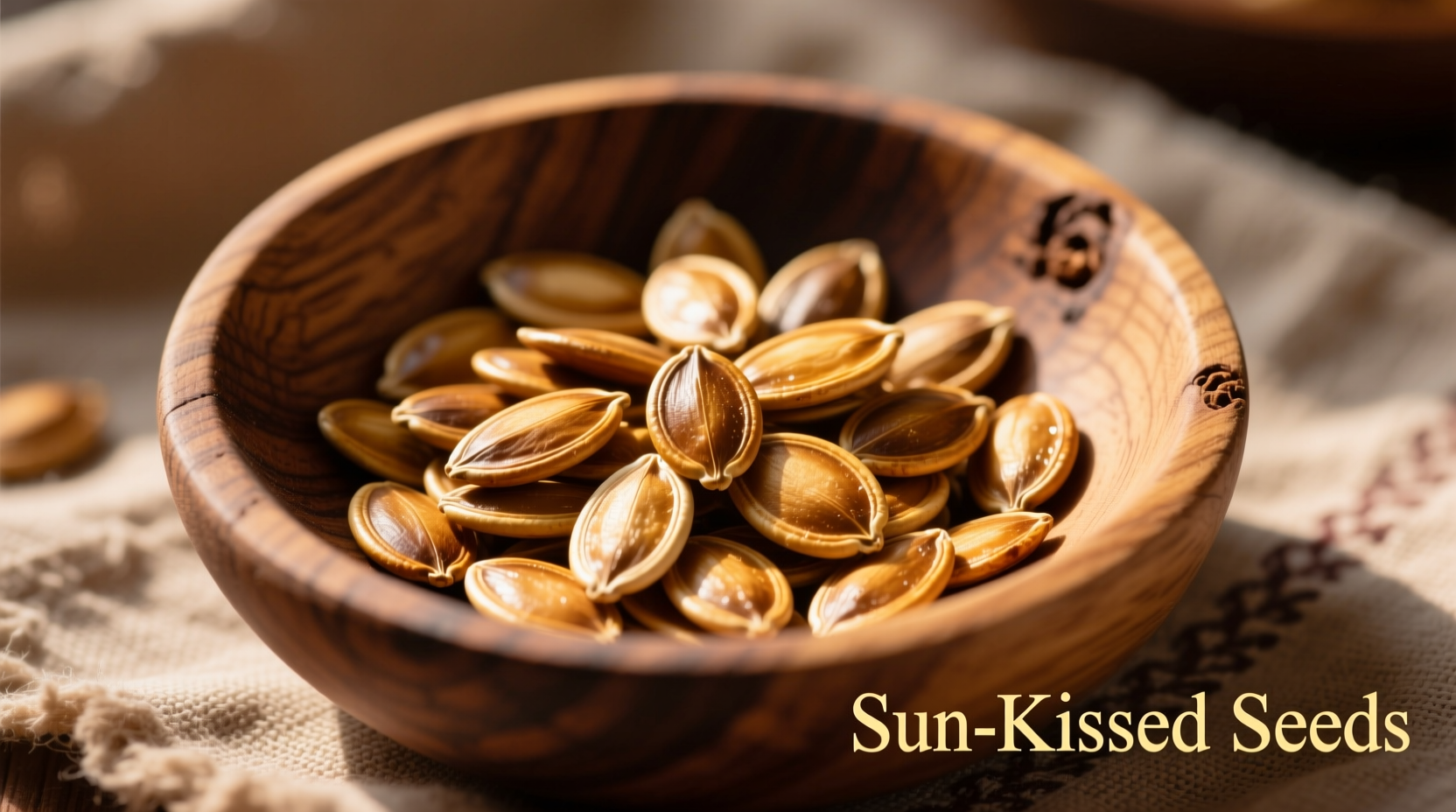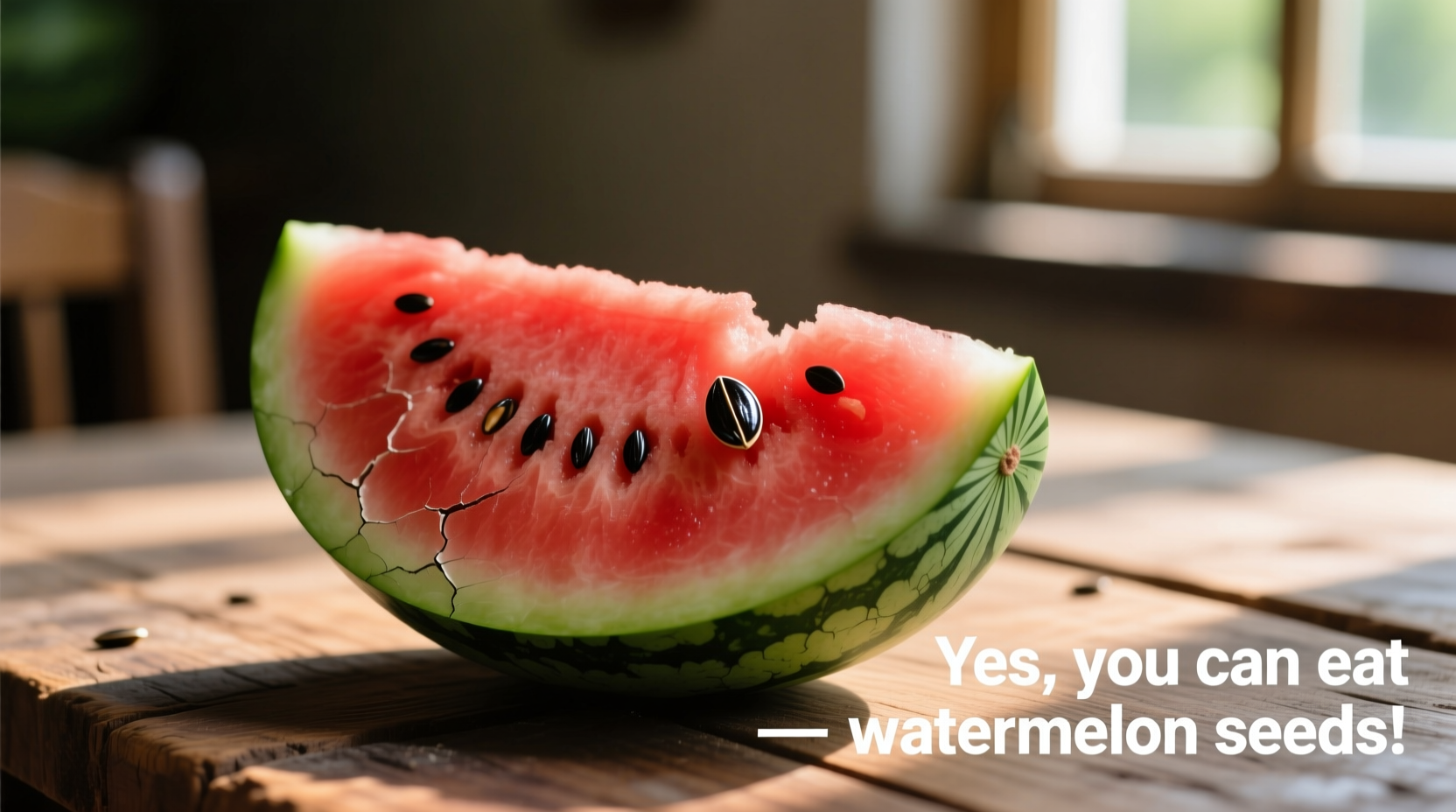Many people instinctively spit out watermelon seeds, but this common practice might be missing out on a nutritious snack. Watermelon seeds are completely safe to eat and offer surprising health benefits that most consumers overlook. Let's explore the facts behind this often-discarded part of summer's favorite fruit.
Understanding Watermelon Seeds: The Basics
Watermelon seeds contain valuable nutrients that remain intact whether eaten raw or roasted. Unlike some fruit seeds (like apple or cherry pits), watermelon seeds don't contain harmful compounds in quantities that would affect human health. The black seeds found in traditional watermelons are fully mature and packed with nutrition, while the white "seedless" varieties actually contain soft, immature seeds that are also edible.
| Seed Type | Edibility | Nutritional Value | Texture |
|---|---|---|---|
| Black Seeds (Regular Watermelon) | Fully edible | High in protein, magnesium, zinc | Firm, requires chewing |
| White Seeds (Seedless Watermelon) | Fully edible | Lower concentration of nutrients | Soft, barely noticeable |
| Roasted Seeds | Fully edible | Enhanced nutrient availability | Crispy, nut-like |
Nutritional Powerhouse You've Been Spitting Out
According to USDA FoodData Central, one ounce (28g) of dried watermelon seeds contains approximately 159 calories, 8g of protein, 14g of healthy fats, and significant amounts of essential minerals. These seeds rank among the most nutrient-dense parts of the watermelon, offering more protein per serving than many popular nuts.
Watermelon seeds provide substantial amounts of magnesium (139mg per ounce), which supports muscle function and bone health, and zinc (2.2mg per ounce), crucial for immune function. They also contain iron, potassium, and B vitamins that contribute to overall wellness. The healthy fats in watermelon seeds are primarily unsaturated, making them heart-friendly when consumed in moderation.

Safety Considerations: What You Should Know
Despite common misconceptions, watermelon seeds pose no toxicity risk. The American Dietetic Association confirms that watermelon seeds don't contain amygdalin (the compound that makes some fruit pits potentially dangerous in large quantities). You can safely consume watermelon seeds without concern for poisoning or digestive blockages.
Some people worry about seeds sprouting in their stomach, but this myth has no scientific basis. Your digestive system breaks down seeds effectively, and the acidic environment prevents any possibility of germination. The primary consideration is texture preference rather than safety concerns.
Practical Ways to Enjoy Watermelon Seeds
While you can eat watermelon seeds raw directly from the fruit, roasting them enhances both flavor and nutrient availability. Here's a simple preparation method:
- Collect seeds from fresh watermelon
- Rinse thoroughly to remove fruit residue
- Soak in salted water for 10-15 minutes
- Spread on baking sheet and roast at 325°F (160°C) for 15-20 minutes
- Cool completely before storing
Roasted watermelon seeds make an excellent snack alternative to traditional nuts. You can season them with sea salt, chili powder, or herbs for different flavor profiles. Many cultures incorporate watermelon seeds into traditional dishes - in China, roasted seeds are a popular street food, while in West Africa, they're ground into soups and stews.
Cultural Context and Culinary Applications
Watermelon seeds have been consumed for centuries across various cultures. Historical records from the USDA Agricultural Research Service show that indigenous communities in Africa and Native American tribes traditionally dried and roasted watermelon seeds as a valuable food source during dry seasons.
In modern cuisine, creative chefs are rediscovering watermelon seeds as a sustainable ingredient. Some restaurants now feature watermelon seed pesto, seed milk alternatives, and even seed-based desserts. This culinary trend aligns with the growing movement toward reducing food waste by utilizing the entire fruit.
Who Might Want to Limit Consumption
While watermelon seeds are safe for most people, certain individuals should moderate their intake. Those with digestive sensitivities might experience mild discomfort from consuming large quantities of raw seeds due to their fiber content. People managing calorie intake should be mindful of portion sizes, as seeds are calorie-dense.
Individuals with specific seed allergies should avoid watermelon seeds, though such allergies are relatively rare compared to nut allergies. As with any food, moderation is key - enjoying a small handful of seeds provides benefits without excessive calorie intake.











 浙公网安备
33010002000092号
浙公网安备
33010002000092号 浙B2-20120091-4
浙B2-20120091-4